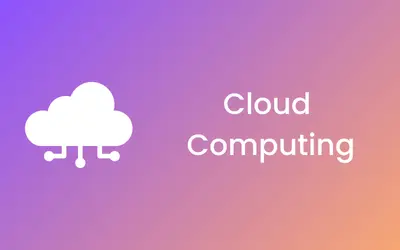Overview of
Cloud Computing Courses in Durban
Cloud computing has taken the world by storm, and with its numerous advantages, more and more businesses are moving their operations to the cloud. As a result, there is a high demand for professionals who have the skills and knowledge to help companies implement and maintain cloud-based solutions. With Durban being a key business hub in South Africa, it comes as no surprise to see a rise in the demand for cloud computing courses in Durban.
A cloud computing course in Durban would explore the concepts, tools, and technologies involved in cloud computing. The course would cover the various types of cloud computing, including Infrastructure as a Service (IaaS), Platform as a Service (PaaS), and Software as a Service (SaaS). Students would gain hands-on experience using popular cloud platforms like Amazon Web Services (AWS) and Microsoft Azure.
The course would also delve into the various cloud deployment models: public, private, and hybrid clouds. Students would learn about the advantages and disadvantages of each deployment model and how to choose the best model for a given scenario.
Security is a critical aspect of cloud computing, and as such, a cloud computing course in Durban would cover security principles in the cloud. Students would learn about security risks associated with cloud computing and the security measures that can be put in place to mitigate these risks. They would also explore compliance requirements for cloud-based systems.
Cloud computing courses in Durban would cater to individuals who have different levels of experience and backgrounds. Whether you are an IT professional looking to reskill or a recent graduate looking to break into the tech industry, there is a course that suits your needs.
For individuals who are new to cloud computing, a beginner's course would cover the fundamentals of cloud computing, including how it works, the benefits of cloud computing, and the different types of cloud computing. It would also provide an overview of cloud platforms and deployment models.
For individuals who have some experience with cloud computing, an intermediate course would offer a deeper dive into the technical aspects of cloud computing. The course would cover topics such as cloud architecture, cloud security, and cloud automation.
For experienced professionals, an advanced course would equip students with the skills and knowledge required to design, deploy, and manage complex cloud-based systems. The course would cover advanced topics such as cloud-based data analytics, DevOps in the cloud, and cloud-based machine learning.
In conclusion, cloud computing is an increasingly popular approach to managing IT infrastructure and applications. A cloud computing course in Durban would equip students with the skills and knowledge to help companies transition to the cloud. As demand for cloud professionals continues to grow, a cloud computing course in Durban is an excellent way to stay ahead of the curve and advance your career in the tech industry.








